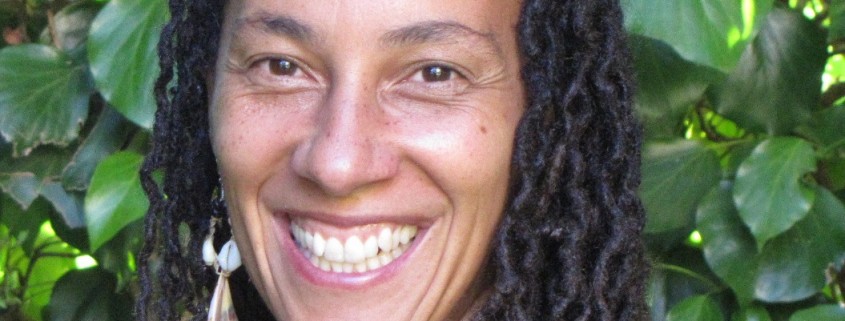
Birth Matters: Research Justice and Black Life
African American women are 3 to 4 times as likely as white women to die of childbirth related causes, our infants are twice as likely not to survive their first year. “Birthing while black” is a site of struggle, which for too many leads to disabling, trauma or even death. Birth matters in conversations about black life and death, yet the reproductive autonomy of black women and trans/gender nonconforming pregnant and birthing individuals has only recently gained recognition with the #BlackLivesMatter and #SayHerName movements. Research justice is a strategic framework within which those directly affected by structural violence and discrimination use research tools in order to achieve self determination and lasting social change. Using a research justice approach, Oparah worked alongside members of Oakland-based collective Black Women Birthing Justice to document black women’s experiences of childbirth, and to publish an anthology of critical essays and activist and personal testimonies on black bodies and birth justice. In this talk, she explores the role of activist scholars in the movement to #LiberateBlackBirth.
Chinyere Oparah is an activist scholar, social justice educator and experienced community organizer, who is dedicated to producing critical scholarship in the service of progressive social movements. Oparah is an African diaspora specialist, whose interests span a number of different social concerns, including activism by women of color, violence against women, women and the prison-industrial complex, restorative justice, queer and transgender liberation, race and adoption, research justice and birth activism. Her work is informed by personal experiences of crossing racial, gendered and national boundaries as a biracial, transracial/ transnational adoptee, survivor of intimate violence and queer parent with ties to Britain, Nigeria and the U.S.
Oparah is Associate Provost and professor and department chair of Ethnic Studies at Mills College. She played a leading role in the establishment of Mills’ Queer Studies Program and sits on the Advisory Committee for that program. She recently led the College’s Gender Expression and Identity initiative, leading to the production of an important report on improving the experiences of transgender and gender-fluid students at Mills.
Oparah was awarded the Rockefeller Fellowship in Sex, Race and Globalization in 2002, and held the prestigious Canada Research Chair in Social Justice and Diversity at the University of Toronto from 2004-6. Educated at Cambridge University and Warwick University, she has graduate degrees in Sociology and Ethnic Studies. In addition, Oparah trained in community development. Prior to entering academia, she coordinated a black women’s center in the UK, and was executive director of a national development agency for non-profits serving communities of color.
Oparah is author of Other Kinds of Dreams: Black Women’s Organizations and the Politics of Organization, the only comprehensive history of the black women’s movement on Britain. She is editor of Global Lockdown: Race, Gender and the Prison-Industrial Complex, a seminal work that mapped the connections between globalization, gender and mass incarceration. She is also co-editor of 3 books: Activist Scholarship: Antiracism, Feminism and Social Change, Color of Violence: the Incite! Anthology. and Outsiders Within: Writing on Transracial Adoption.
She is working with the grassroots community organization Black Women Birthing Justice on a participatory action research project about black women’s experiences of pregnancy and childbirth, and editing an anthology on black women in the birth justice movement. In her spare time she practices mindfulness meditation and vinyasa yoga, sings along to gospel music, hangs out with toddlers and is learning horse-riding. Oparah has Nigerian (Igbo) and British origins, and immigrated to the US in 1995. She lives in East Oakland with her partner and daughter.
Each of the six speakers in this series, “In the Interests of Justice: Bringing Theory into Practice,” is engaged in producing vital knowledge about the relationships between health. social inequity. race. gender. and power. Featured scholars will share their recent or ongoing work. and comment on the implications for changing and improving practice. in the fields of law. healthcare. or social services. in order to meet the needs of populations facing complex social. health. or disabling challenges. This series is a collaboration between Repair, a Los-Angeles based health and disability justice organization and the UCLA American Indian Studies Center, the UCLA Program in Disability Studies. and the UCLA Department of Gender Studies. Funding and support are provided by NetCE.
Organized by: UCLA Department of Gender Studies
Cosponsored by: UCLA Center for the Study of Women, UCLA Program in Disability Studies, and UCLA American Indian Studies Center




